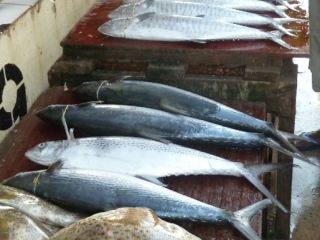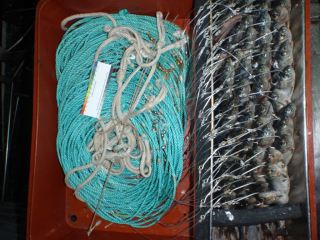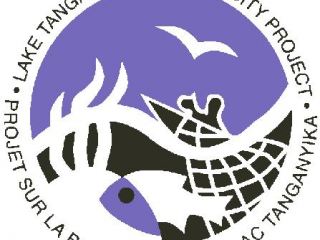
Co-management represents a partnership in fisheries management between various entities including governments, agencies, non-government organisations and local people dependent on fisheries for their livelihoods and has been recognised as providing critical opportunities for successful fisheries management, particularly for small-scale fisheries. Co-management provides greater opportunity for management that is adapted to local needs and aspirations, with authority and responsibility for creating and enforcing rules placed, to a greater degree, with those who depend on them. Community-based management and co-management provide a greater opportunity for management that builds directly on existing local knowledge of resources and community needs. MRAG consultants appreciate that the implementation of successful community-based or co-management requires more than just knowledge of resource management but also encompasses community and economic development, capability building, and institutional support.
Our consultants have utilised a wide range of tools in promoting and implementing co-management schemes including exploring options of co-management that would lead to optimum success incorporating factors such as equity, compliance and wellbeing as well as developing models of adaptive co-management. MRAG has extensive in-country experience in delivering effective community-based and co-management and of evaluating the success of such systems. MRAG have developed innovative models for assessing performance across systems based upon multivariate analysis of key attributes, including Bayesian Network modelling, to diagnose strengths and weaknesses and identify key conditions for success. Other relevant services offered by MRAG incorporate:
- Short and long-term monitoring and analysis of community-based management performance;
- Training for stakeholders at different levels from the community through to local government;
- Establishment and support of co-management organisations such as ‘Beach Management Units’;
- Development of Rights-Based Fisheries Management (RBFM) systems;
- Development of fisheries management decision support tools to assist management decisions.
Projects
| Title | Region | End Date | |
|---|---|---|---|

|
Community and Stakeholder Engagement on Future Options for Aquaculture Development in the Falkland Islands
The overall aim of this project is to conduct in-depth public and stakeholder… |
Atlantic Ocean | - |

|
Conduct situation analysis for artisanal fisheries enhancement, through functional development of CMAs and TURFs in Sierra Leone.
To improve fisheries governance and implementation of four marine protected areas (… |
Africa | - |

|
Tuna Fisheries Management Plan
The development of this 10-year Tuna Fisheries Management Plan (TFMP), follows the FAO… |
Africa | - |

|
Consultancy Services for Preparation Of Three Management Plans For Reef, Octopus And Small Pelagic Fisheries in Zanzibar
This 9-month project developed three fisheries management plans (FMP) for (i) octopus… |
Africa | - |

|
Climate Resilience, Livelihoods and sustainable Natural Resources Management in the Elephant Marshes
This project was conducted under the umbrella of the World Bank/Global Environment… |
Africa | - |

|
South Georgia and South Sandwich Islands Fisheries Management.
The work undertaken by MRAG for Government of South Georgia and the South Sandwich… |
Atlantic Ocean | - |

|
Liberia national co-management workshop
Support to the development and implementation of a national co-management workshop… |
Africa | - |

|
Implementation of a Fisheries Management Plan for Lake Victoria
The objective of the project was to contribute to the sustainable economic growth and… |
Africa | - |

|
Synthesis of FMSP experience and lessons learned for fisheries co-management
This project collated lessons learned and experiences on co-management from a number… |
Global | - |

|
Interdisciplinary Multivariate Analysis (IMA) for Adaptive Co-Management
Artisanal fisheries are fundamentally important in the developing world but are often… |
Africa | - |

|
GEF Pollution control and other measures to protect biodiversity in Lake Tanganyika.
Lake Tanganyika is an international water body that is an important resource for the… |
Africa | - |
